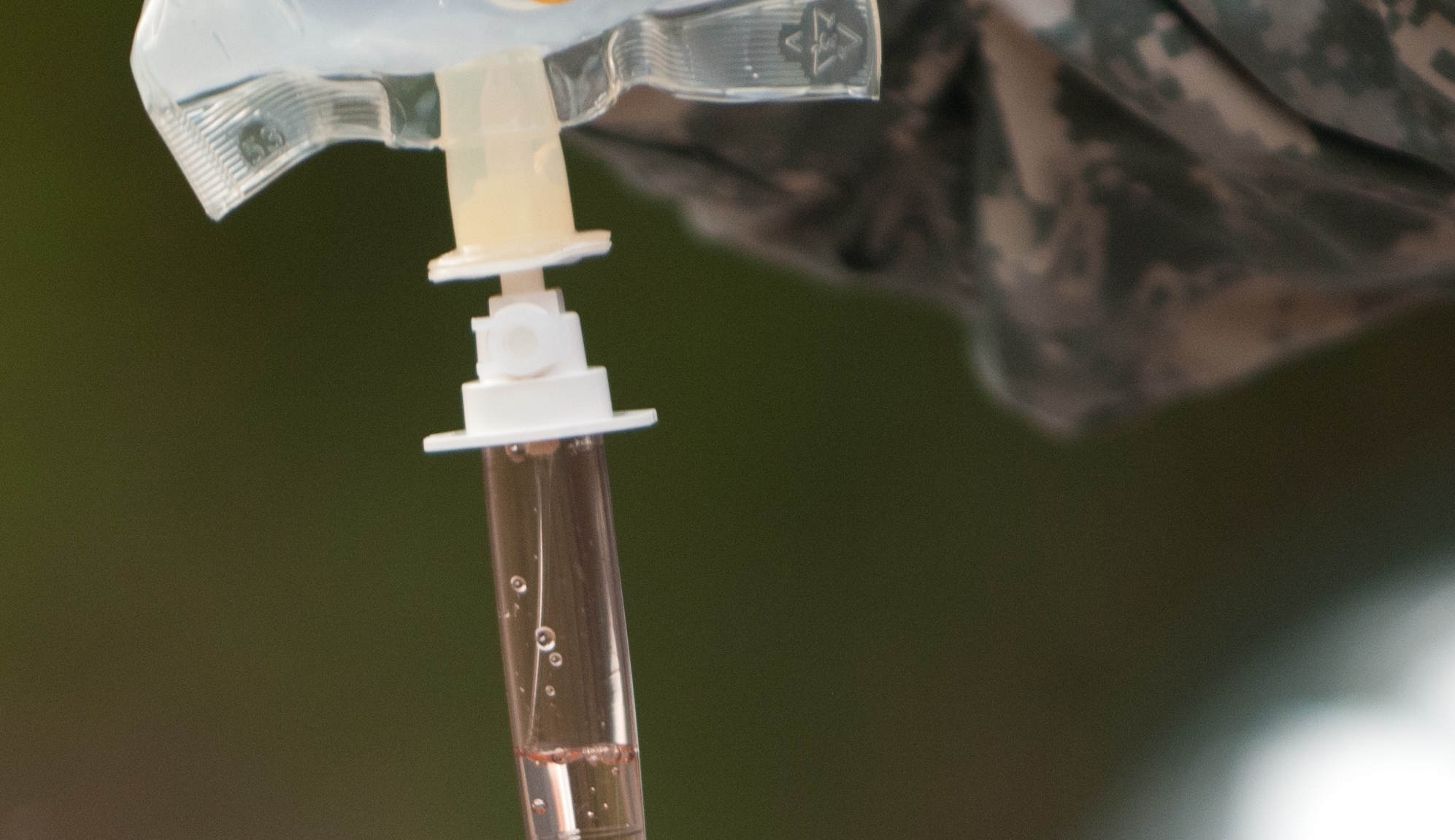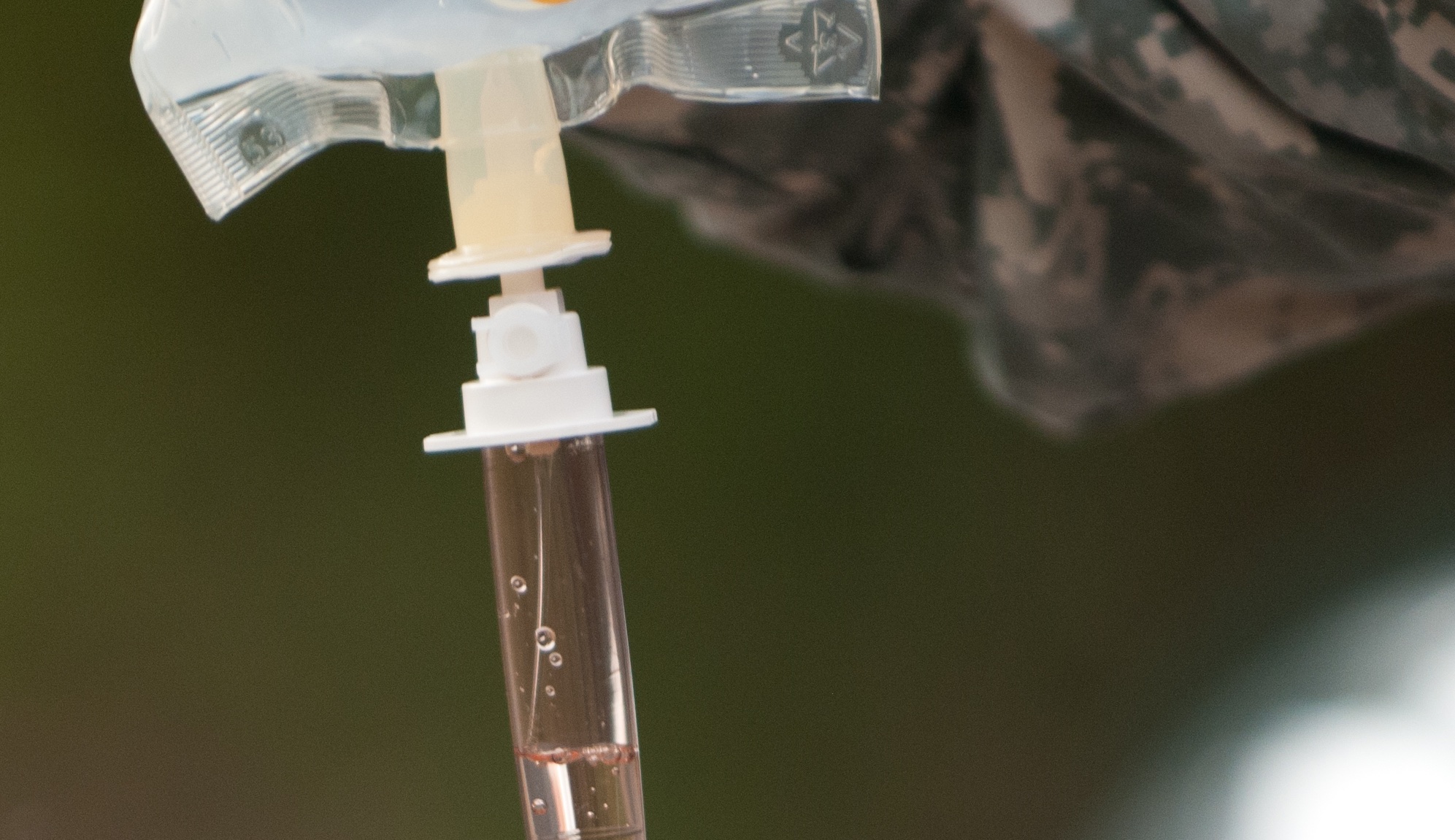

A week after Hurricane Helene knocked out a factory that produces more than half of the country’s intravenous solutions, the president of a group that represents about 5,000 hospitals is suggesting that the U.S. military might need to fly in IV fluids from around the world as U.S. supplies rapidly dwindle.
Richard J. Pollack, president and CEO of the American Hospital Association, urged President Joe Biden to invoke the Defense Production Act domestically and “direct the Department of Defense to make transportation available for emergency supplies from other international sources.”
Such a call-up might mirror efforts in 2022 that saw Air Force C-17s deliver payloads of baby formula from Europe when COVID issues drastically reduced U.S. output.
Pollack’s plea comes in response to the closing of Baxter International’s North Cove factory outside Marion, North Carolina. Prior to Hurricane Helene, the plant produced 60% of the country’s IV solutions or nearly 1.5 million bags per day. Baxter International announced on Sept. 29 that damage from Helene had closed the plant. Company officials have not said when they think it might be back online.
Hospitals across the country are now working to conserve their supplies of IV fluids, ranging from facilities in North Carolina to as far north as Boston.
In his Oct. 7 letter to Biden, Pollack wrote that the association’s members are already facing “substantial shortages of lifesaving and life-supporting products” due to the North Cove plant’s closure.
Subscribe to Task & Purpose today. Get the latest military news and culture in your inbox daily.
“Patients across America are already feeling this impact, which will only deepen in the coming days and weeks unless much more is done to alleviate the situation and minimize the impact on patient care,” Pollack wrote.
Pollack urged the Biden administration to take a series of measures to alleviate the IV fluids shortage, including invoking the Defense Production Act to provide manufacturers with incentives to expand the production of materials needed to make sterile IV solutions and their containers; and ordering the Defense Department to transport emergency supplies of IV fluids from international sources.
Located in Marion, North Carolina, Baxter International’s North Cove facility is a little more than 30 miles north of Asheville, which is still recovering from Helene. Western North Carolina is among the worst hit areas by the storm, with communities flooded, roads cut off and even more than a week later, several areas still accessible only by aerial transport.
As of Tuesday, the North Cove facility remained closed for production, a company spokesperson told Task & Purpose. IV fluids are used in virtually all areas of modern medical care, from car crash scenes where street medics use them to compensate for heavy bleeding, to operating rooms where IV fluids deliver sedatives for surgery.
IV fluids are also ubiquitous in military medicine, from kits carried by battlefield medics to civilian-style use in military hospitals and clinics.
“While we look forward to returning to full operations in the future, there are many components to the recovery process given the nature of sterile drug manufacturing,” the spokesperson said. “We are working with the greatest urgency, but we do not yet have a timeline for when operations will be back up and running.”
In an Oct. 7 statement, Baxter International announced that a rock bridge set up to reach the plant at North Cove is working and they are trying to set up a second one. Completed goods not impacted by the storm were taken off site, while others are currently under inspection. The company has resumed shipments to hospitals as of Oct. 7.
“Several of our global plants are scaling and ramping production to help meet U.S. needs, and we expect to receive product from these sources throughout the month of October,” the company statement says. “We will communicate adjustments to allocations within the next two weeks as we assess timing of inbound products and shipments.”
Meanwhile, the Defense Health Agency provided a statement to Task & Purpose saying that it is working with the Defense Logistics Agency, Baxter International, and prime vendors to make sure any production and manufacturing disruptions caused by Helene have “minimal impact” on military hospitals and clinics.
“We are communicating with all our military medical treatment facilities and providing recommendations for the management and conservation of their inventories, and information about alternative sources of supply,” the agency said in the statement. “If circumstances change at the local or enterprise level, DHA will issue updated guidance to our facilities to ensure they can complete their mission of taking care of our patients.”
